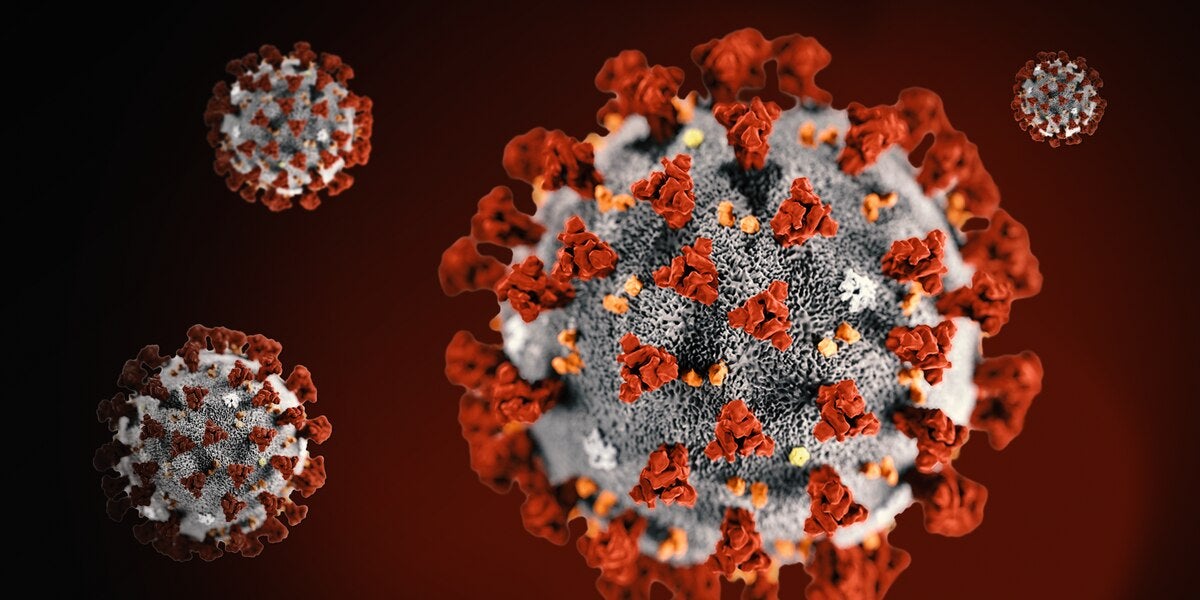Campaigns in the Time of COVID-19
The Georgetown Institute of Politics and Public Service (GU Politics) hosted the chairs of the Democratic and Republican National Committee for conversations on campaigning during COVID-19.
In late April, McCourt’s Georgetown Institute for Politics and Public Service (GU Politics) hosted Democratic National Committee chair Tom Perez and Republican National Committee chair Ronna McDaniel for individual discussions on issues related to campaigning during the COVID-19 crisis and how their organizations were adapting. Following each interview, moderated by GU Politics director Mo Elleithee, the speakers took questions from students and members of the Georgetown community.
Campaigning in the time of Coronavirus
The coronavirus outbreak hit the United States just as presumptive candidates emerged from both parties leaving both parties to chart out how to campaign in the time of COVID-19.
The current crisis has limited politicians’ abilities to energize large crowds in-person with their plans for the future, but DNC chair Tom Perez argues that this will not be a limiting factor. “We know how to organize in the middle of a pandemic, we saw that in Wisconsin, and I am proud of the voters who continue to turn out. We can do this.”
While the transition to virtual campaigning was sudden, both Perez and McDaniel expressed how impressed they have been by staff members’ ability to quickly adapt and engage with a large audience virtually.
Transition to Virtual
“We quickly recognized that we had to shift our strategy…we flipped it to a virtual operation within about 24 hours,” explained RNC chair Ronna McDaniel. ”On our first virtual day of action, we contacted 1.5 million voters.”
DNC chair Tom Perez commended his staff and the millions of primary voters who turned out to vote. . “If we weren’t in the middle of a global pandemic right now, we would be talking about the lights out turnout from Democrats across the nation,” said Perez. …”We are building the infrastructure at the DNC so that we can win up and down the ballot this election.”
Both Perez and McDaniel continually praised the flexibility and adaptability of staff members and the vigor that new volunteers have approached this election cycle. Perez also noted that with more people staying at home, phone banking volunteers noticed a greater willingness from voters to stay on the phone and talk about the future of the country.
Importance of Data Science
It is important for campaigns to have a robust digital and data science operation perhaps now more than ever.
Both Perez and McDaniel cited data science as a key tool for restrategizing and designing digital campaigning efforts.
McDaniel, touting the strength of her digital team, noted that “with the bandwidth we have and the things we are able to do with data, digital, and much more, we were able to build the road for our candidates to drive on.” The RNC team is targeting ads to reach individuals who are currently not seeing Republican ads,which mostly include individuals residing in rural parts of Minnesota, New Hampshire, and Nevada.
Perez, on the other hand, told GU Politics director Mo Elleithee that the DNC team is focusing on Pennsylvania, Michigan, Wisconsin, and Arizona, an interesting change in tactics since the 2016 election.
Perez, in response to a question from Vidiruth Chan (G’21), a masters candidate in Georgetown’s data science and analytics program, noted that this change in tactics was inspired by a better understanding of audience analytics in key states. He went on to add that “data infrastructure is absolutely critical… and because we made those investments we now have the ability to do more than we ever could before.”
What the Future looks like
With August fast approaching and the virus showing few signs of letting up, Elleithee asked both Perez and McDaniel what their plans were for the upcoming national conventions.
Both had very different responses.
Perez shared a cautious yet hopeful outlook stating: “We are not putting our public health heads in the sand…while we would love to have a robust in-person event, we are planning for every possibility so that we can have a safe and successful convention.”
McDaniel, on the other hand, shared a very optimistic outlook for August, telling Elleithee “we will not be having a virtual convention, there will be an in-person convention.”
The virtual chats with the chairs, facilitated by the Georgetown Institute for Politics and Public Service at the McCourt School, offers students from inside and outside the Georgetown community the opportunity to gain deeper insight into the campaign process in these uncertain times.
